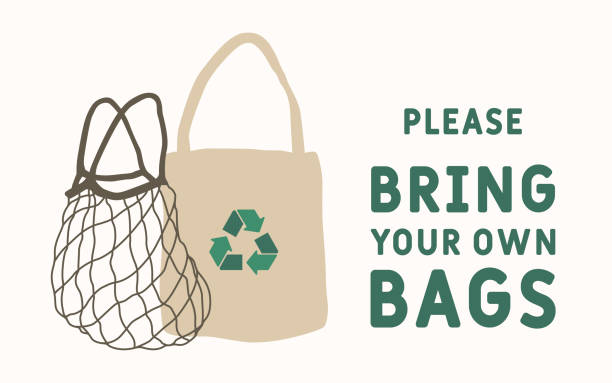Bring Your Own Bag to the Agri-Easter Night Market to Support Environmental Sustainability
The idyllic Caribbean island nation of St. Kitts is embarking on a transformative journey towards environmental sustainability, marked by a decisive shift away from single-use plastics. The upcoming Agri-Easter Night Market, scheduled for Wednesday, 16th April 2025, at the Basseterre Public Market, stands as a testament to this commitment. This vibrant event, a collaborative effort between the Ministry of Agriculture, Fisheries, and Marine Resources and the Ministry of Small Business, Entrepreneurship, Cooperatives, and the Creative Economy, is not only a celebration of local agriculture and entrepreneurship but also a platform for promoting eco-conscious practices amongst its citizens. In a nostalgic return to tradition, attendees are encouraged to bring their own reusable shopping bags, echoing a time when such practices were ingrained in the island’s culture.
The call for reusable bags aligns perfectly with the newly enacted Plastic Waste Reduction Act, 2025, which officially prohibited the distribution of plastic T-shirt bags across St. Kitts, effective April 1st, 2025. This legislation represents a significant stride in the government’s ongoing campaign to combat plastic pollution and foster a more sustainable future for the nation. The Agri-Easter Night Market serves as a practical demonstration of how public events can be organized with environmental consciousness at the forefront, setting a precedent for future gatherings. By encouraging the use of reusable bags, the event aims to instill a sense of responsibility among patrons and normalize eco-friendly practices within the community.
The emphasis on reusable bags carries a deeper significance beyond its environmental impact. It serves as a symbolic link to the island’s rich cultural heritage, harking back to a simpler time when reusable bags were a common sight at local markets. Chaira Flanders, Head of the Media and Communications Department at the Ministry of Agriculture, eloquently captures this sentiment, reminiscing about childhood memories of accompanying elders to the market with their own bags. This nostalgic connection reinforces the idea that sustainability isn’t merely a modern trend but a return to traditional values of resourcefulness and respect for the environment.
The Agri-Easter Night Market is more than just a shopping experience; it’s a celebration of community, local produce, and sustainable living. The event provides a platform for local farmers and agri-businesses to showcase their fresh, locally grown, and organic produce, promoting healthier food choices among consumers. This focus on local produce not only supports the island’s agricultural sector but also reduces the environmental impact associated with importing food. The market also creates a vibrant atmosphere for small businesses and entrepreneurs, fostering economic activity and strengthening the local economy.
The Easter-themed event promises a fun, family-friendly environment, offering a space for community members to connect and celebrate the festive season. The night market, operating from 5:00 p.m. to 10:00 p.m., offers a unique evening experience, allowing attendees to enjoy the cool island air while browsing the stalls and engaging with local vendors. This festive atmosphere adds to the overall appeal of the event, attracting a diverse crowd and further promoting the message of sustainability.
The Ministry of Agriculture’s invitation to the public extends beyond simply attending the event; it’s a call to action, urging individuals to actively participate in building a more sustainable future for St. Kitts and Nevis. By bringing their own reusable bags, supporting local vendors, and embracing the spirit of the event, attendees can contribute to a larger movement towards environmental responsibility. The Agri-Easter Night Market is not just a single event but a symbol of the island’s commitment to a greener future, a future where sustainable practices are woven into the fabric of everyday life. It serves as an inspiring example of how community engagement and government initiatives can work hand-in-hand to create positive change.
Share this content:












Post Comment